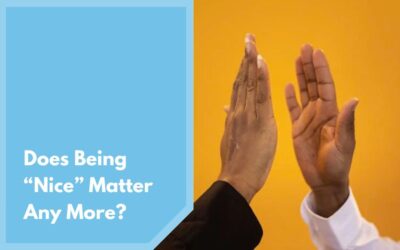From time to time, team members will share their views stimulated by content from an industry thought leader. Here, our CEO, Lisa Maier, discusses the recent McKinsey Quarterly article, “The most fundamental skill: Intentional learning and the career advantage,” by Lisa Christensen, Jake Gittleson, and Matt Smith with McKinsey & Company.
This article is about ‘learning’ as a capability that can increase competitive advantage at work and also improve our personal lives to boot. If this is a skill that can be learned, it is an important one for most of us, given that the the pace of change in the world is already high and expected to increase even more in our lifetimes. Agility increases as our capability to learn grows, and this skill starts with intentionality that is founded on a core belief of self-efficacy. Here’s how to proceed.
Unlock intentionality to foster learning by adjusting two critical mindsets:
- Adopt a growth perspective: As compared to a fixed mindset that assumes growth is not possible since “I am how I am,” a growth mindset suggests that important improvements and enhancements in talents are the reward for our efforts. This perspective is nurtured by reframing possibilities for growth as you encounter the opportunities to do so.
- Feed your curiosity: Seen as the ‘engine of intentional learning,’ it primes the pump for learning by creating openness to new ideas, expanding awareness and improving our ability to make disparate concept connections. The curiosity muscle is strengthened by facing our fears, seeking novel experiences and ideas, and by focusing what we love or what brings us joy. (Now that sounds like a lot of fun, doesn’t it?)
“Practice makes perfect” AKA the five core skills of intentional learners, which is how they get the most out of their learning experiences:
- Set goals that are clear and reasonable: tangible goals of appropriate size is how curiosity is used as a tool rather than a source of distraction. Having goals is also how learning is best retained. It is suggested that we set goals that personally matter to us, make the goals concrete and an interesting third suggestion is to “adopt a ‘once-in-a-career’ mindset,” which encourages us to take on tasks that are interesting mainly because this is likely the only time in our careers we will encounter the opportunity. This pandemic is rich in these sorts of opportunities.
- Remove distractions: admittedly, this is a big one for me, which is to set aside time for this learning and then let nothing get in the way. We need to know our personal ‘operating model’ so we can get the best out of our available time and resources, we need to clear our environment of distractions and we need to experiment till we find a method that works for each of us.
- Actively seek actionable feedback: we have someone on our team here at DirectiveGroup who always says “feedback is a gift” and he actively seeks it; I definitely think he is a torchbearer for us. We can help people give good feedback by telling them specifically what you’d like feedback on, press them for the details you need to make the feedback actionable, determine how to use the feedback data you collect and make sure you find experts to help you more clearly visualize where you are trying to go.
- Practice deliberately: we have to try new things, fail, get up, refine and try again. Iteratively. The good news is that there seems to be decisive evidence that experts ‘are made and not born’ so this makes practice all the more important. Deliberate practice is actually an art, and aims to gain improvements by setting the appropriate challenge level, including the proper breadth of practice (not too expansive, not too narrow), focus on the elements that you are not yet skilled in, and finding the learning opportunities in everything you do vs waiting for formal opportunities.
- Reflect regularly: metacognition is reflecting on and directing your own thinking and should be used before, during and after each learning instance. Advance prep primes us to learn, reflection during the execution of a task allows us to make adjustments in real time, and retrospective reflection helps us determine what to apply or change in our next learning opportunity. A bonus of reflection is that it builds your sense of self-efficacy, which sets up a virtuous cycle of becoming ever better learners. At DirectiveGroup, we do PALs (Post-Action-Learnings) and I see now how valuable that practice really is for continual improvement at our performance-based agency.
Bottom line, learning may be scary at first but it puts you in the driver’s seat of your future. And the steps in this article provide a direct path to become an excellent learner, which will benefit us all in this constantly changing world. Enjoy your journey!






